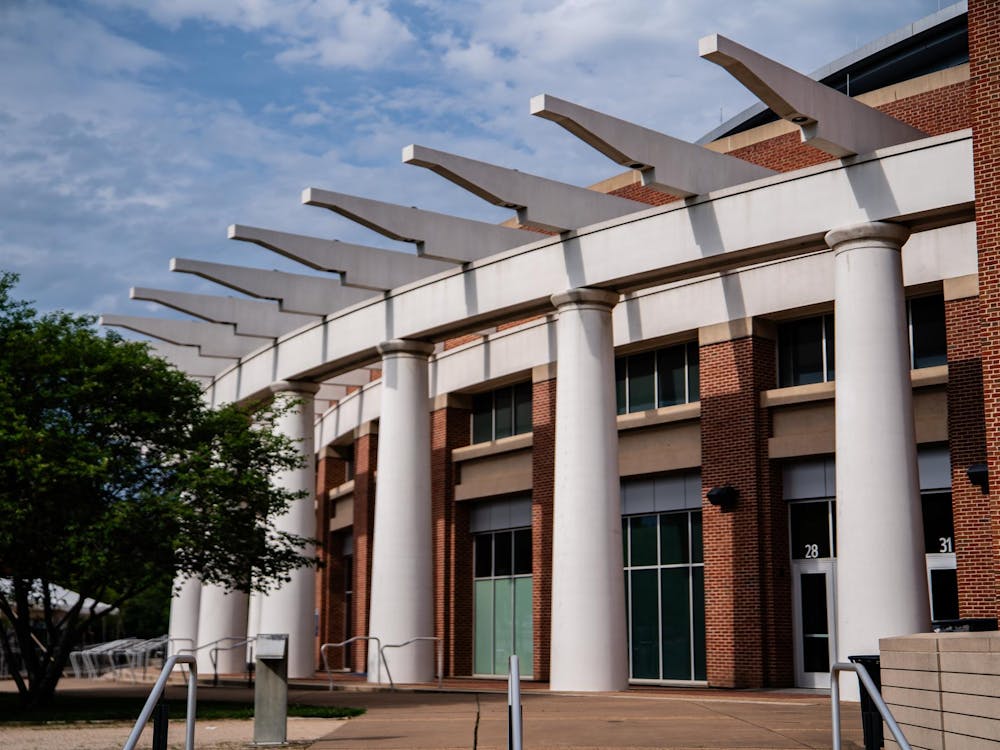Two Cavaliers will represent the Virginia women's tennis team next week at the Intercollegiate Tennis Association All-American Championships in Los Angeles.
Senior Jennifer Stevens and sophomore Emily Fraser qualified for the championship because of their impressive performances last year. At this point in the season, Stevens and Fraser are ranked No. 73 and No. 54 as singles players, respectively, and No. 20 as a doubles team.
The All-American Championship is one of three grand slam tournaments in college tennis. Stevens and Fraser will play at the qualifying singles and main draw doubles levels.
"You roughly have to be more or less the top 75-ranked college player in singles," Virginia coach Mark Guilbeau said. "And then in doubles, you're only looking at the top 16 teams in the country, so you've either got to be ranked roughly in the top 20 in the country, somewhere in there, or the No. 1 team from your region, and [Stevens and Fraser] are both."
Fraser has not participated in singles play this year in hopes of a full recovery from a shoulder injury before the All-Americans. Fraser competed in the doubles portion of the U.Va. Fall Invitational to gauge where she was in terms of recuperation.
"Emily is a real responsible kid, very mature about it, so she's been good about communication and letting us know where she is, and I think that that's helped us be able to put her in to practices and also into some of that competition last weekend," Guilbeau said. "It's not perfect; she hasn't played a lot of singles, but you've got to start somewhere, and she's more than willing to start at All-American and see what she can do. It's really a positive opportunity for her."
The aspect of tennis that puts the most strain on her shoulder is the serve, Fraser said, and she has been adding more serves to practices each week to return to a comfortable routine.
"I've been trying to do a little bit more of an abbreviated motion, hopefully to help my shoulder a little bit and to just take out any extra room to make a mistake," Fraser said. "Any weakness is sort of intentional because I'm trying not to rush in or go too hard too quick, but also, I never really had too much of a powerful serve, it's more about spin, so I feel like if anything I've kind of been able to loosen up a little bit on all of my shots which has allowed me more power than before."
Fraser is not the only member of the Virginia team that has been designating extra attention to this crucial element of singles play.
The Cavaliers have been focusing as a team to find consistency on their second serves to avoid losing points because of double faults. With a solid second serve to reinforce a potential fault, a player can approach the first serve with more confidence and assertiveness.
"It's way too common in tennis and it's getting to the point where [double faults are] accepted, and that's a shame because the game was never meant to get to that stage," Guilbeau said. "I understand power and going for it and I understand that players are trying to attack the drive with a big return but you've got to put the ball in play. You shouldn't penalize yourself if you're the one controlling the point."
Guilbeau said the team also has addressed more specific serving techniques in practice, including the implementation of a wide slice serve on the deuce court when working with right-handed players.
"I think they're all developing that really well and then it's just a matter of knowing when to give the returner a different serve than what they're maybe expecting, so we're working on variety and using the brain to mix it up at the right time," Guilbeau said.
With all of the specific attention granted to serving, the team is confident that it will not run into problems with double faulting this season on the singles or the doubles front.
In her first singles match of the year, Fraser will focus on what Guilbeau said he considers some of the most important techniques for Fraser to improve upon in singles play.
They include "trying to have good court position and being able to determine when you've hurt your opponent and when you can really take the entire court, meaning you can go forward and finish at the net," Guilbeau explained.
This aggressive approach to the game is also useful in doubles. Though Stevens and Fraser have yet to play in competition this fall, Fraser said practices have shown that their chemistry as a pair is still present.
"I love playing with Jenny [Stevens]," Fraser said. "It's great for me because she's for sure the best doubles player that we have. It's also bad in some ways because I rely on her too much, but she's really good, and I'm really happy to play with her."
Playing among such elite athletes at the All-American Championships will challenge the two Virginia players to incorporate the tactics and philosophies they have employed in practices. As singles competitors and a doubles team, the tournament will allow Fraser and Stevens to see what Guilbeau calls "some really good opportunities that are well-earned; it comes from a lot of work through the last year"






